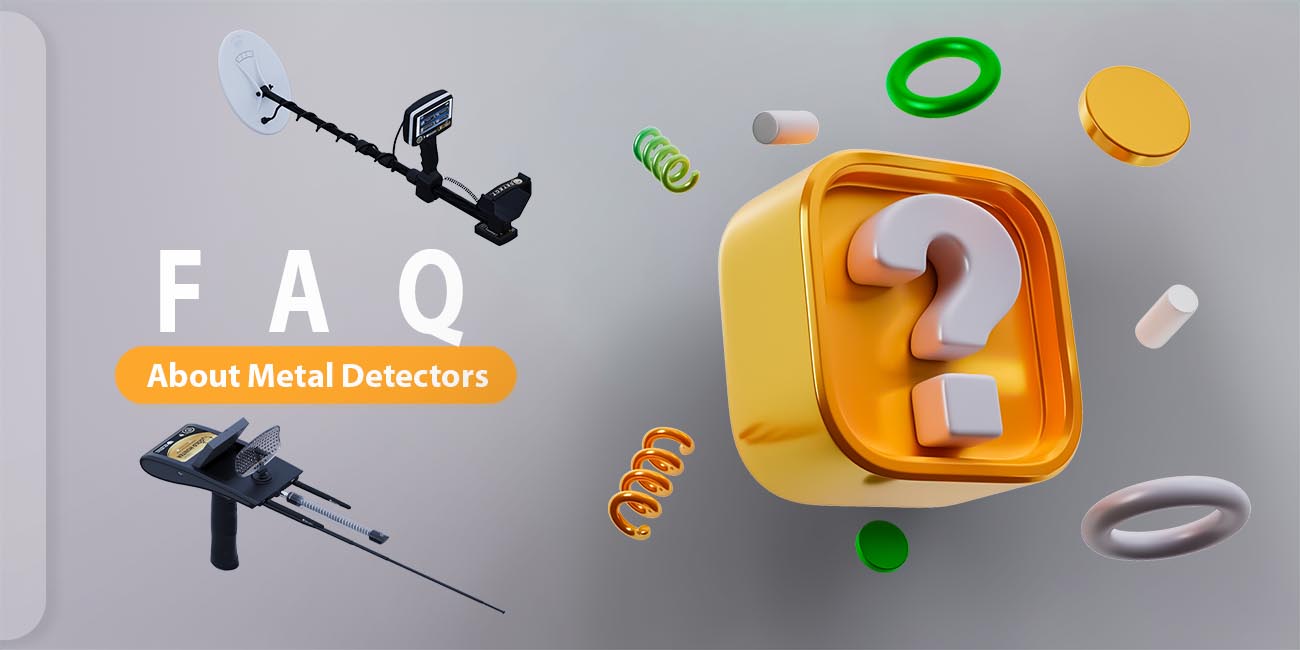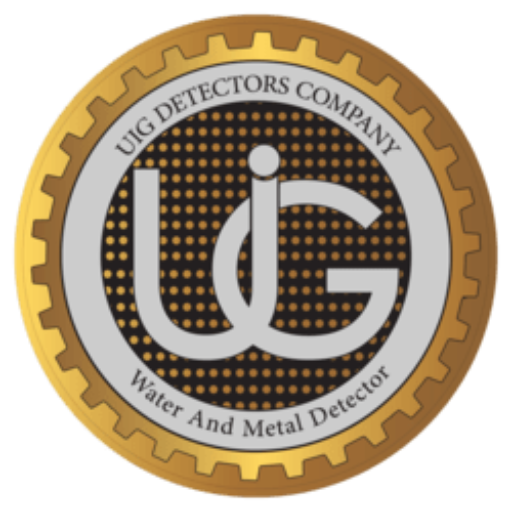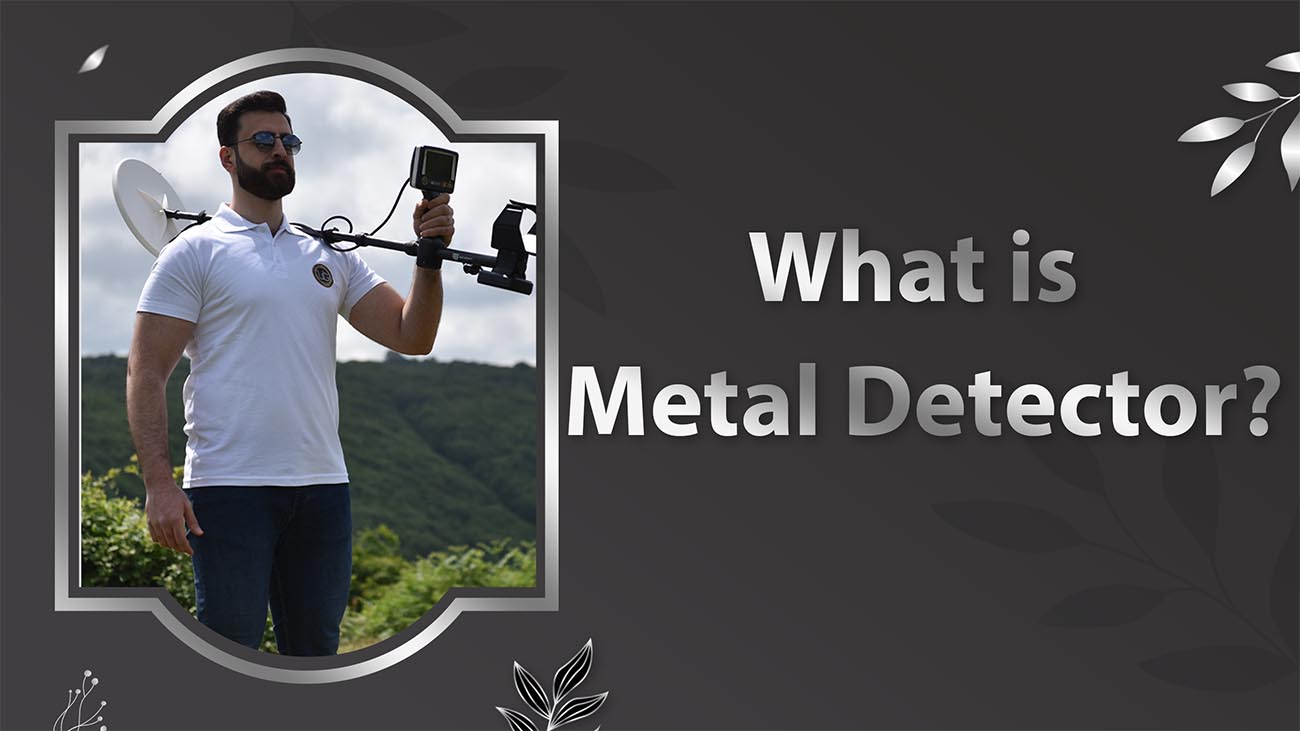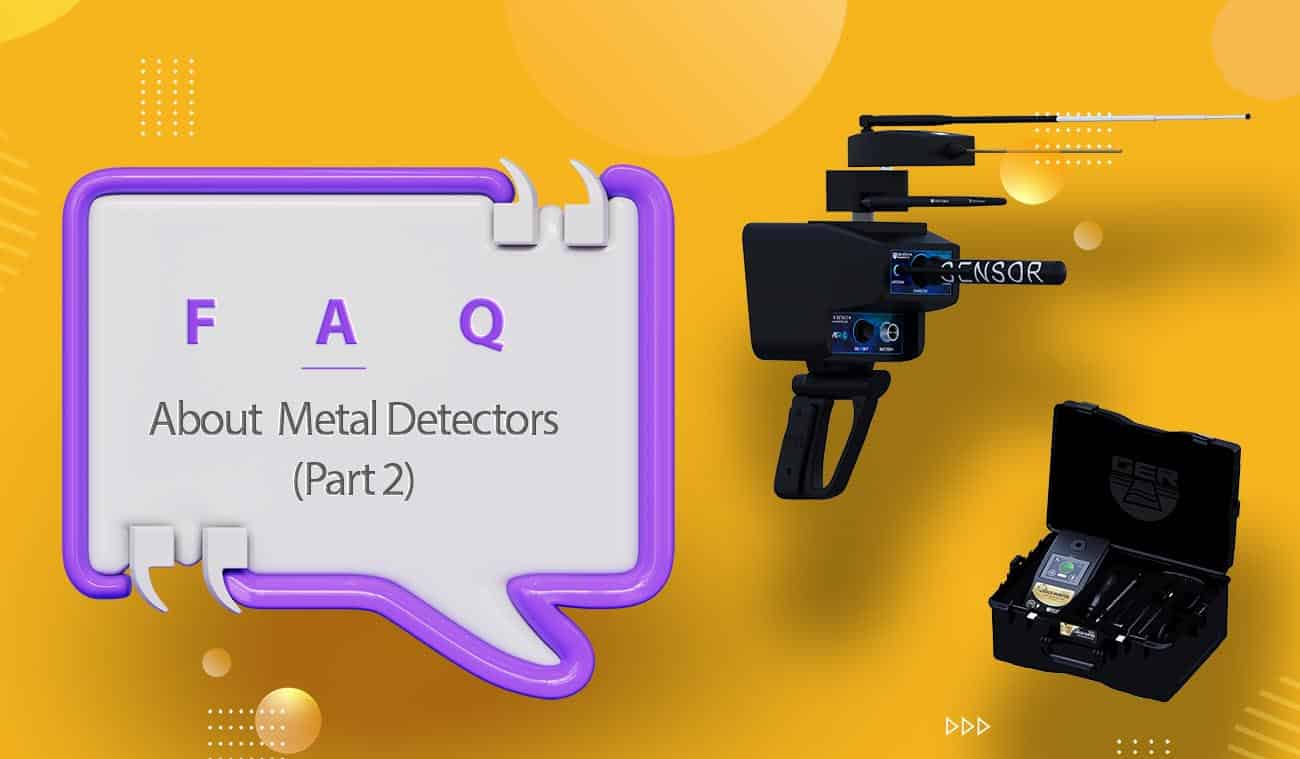Blogs
Frequently asked questions about metal detectors

In this Article, we will provide you with most FAQ frequently asked questions about metal detectors as asked by our community
Frequently asked questions about metal detectors
Are Metal detectors Coil Interchangeable?
No, as coils are specific to each brand due to differences in design and frequency.
For accurate information on coils compatible with your device, it is recommended to check the user manual or visit the brand’s website.
Are there fake metal detectors?
Is metal detecting fun?
Certainly, metal detecting is a fun and exciting activity for many people. This activity involves using specialized devices like the UIG GOLD DIGGER to detect buried metals underground, such as raw gold, gold, bronze, or silver coins, jewelry, ancient artifacts, and even hidden treasures.
People who engage in this activity enjoy the adventure of searching and discovering, and it gives them a chance to explore natural and historical areas.
There are other enjoyable aspects to metal detecting, such as the thrill of finding something valuable or old, and it can also be a social activity when done with friends or in groups.
Can Metal detector detect gold?
Yes, metal detectors can detect gold, but under certain conditions:
– Type of Device: Some detectors are better suited for gold prospecting than others. Detectors using Pulse Induction technology, like the TITAN GER 1000, are ideal for gold detection due to their ability to reach great depths.
– Size and Focus: For searching for small, scattered gold pieces, detectors using Electromagnetic Frequency (VLF) technology, such as the UIG GOLD DIGGER, are the best choice.
– Ground Conditions: Metals in the ground can interfere with the signal, so it’s important to use devices with a ground balancing feature. Most of UIG Detectors’ products for gold and metal detection are equipped with this feature.
Can Metal detector detect Aluminum?
Yes, metal detectors can detect aluminum, but there are some factors to consider:
Type of Device: Not all metal detectors perform the same. Some are primarily designed for detecting ferrous metals (like iron) and may only detect aluminum if the piece is large enough.
Discrimination Settings: Some metal detectors feature discrimination capabilities, allowing you to adjust the settings to avoid unwanted signals, such as those from iron and aluminum debris. This setting is crucial when searching for specific metals, and the UIG GOLD DIGGER is among the leading devices equipped with metal discrimination features.
Size and Depth: Detecting small pieces of aluminum or those buried at significant depths can be challenging without advanced detectors designed for deep searching, like the TITAN GER 1000.
In general, if the detector is of high quality, it should be capable of efficiently detecting aluminum.
Can Metal detector detect vape?
Metal detectors might not reliably pick up on all vapes, but there’s a chance they could trigger it.
Can a metal detector find diamonds?
Specialized metal detectors cannot directly identify diamonds. However, advanced devices have recently emerged that combine metal detection technology with the capability to detect diamonds and even gemstones in one unit. Examples of these devices include:
– TITAN 500 SMART for searching for precious metals, diamonds, and gemstones.
– GOLD HUNTER SMART for searching for precious metals and diamonds.
Can Metal detector detect titanium ?
Yes, metal detectors can detect titanium, but it depends on the type of device and its detection frequency. Titanium is a metal with very weak magnetic properties (almost non-magnetic), so detecting it can be more challenging compared to other metals like iron or copper.
– Some metal detectors, especially those that use Very Low Frequency (VLF) technology, can detect titanium, but proper adjustment of the device is necessary to achieve sufficient sensitivity. An example of this is the UIG GOLD DIGGER.
– Metal detectors that operate using Pulse Induction technology may be better at detecting low conductivity metals like titanium. A prime example of these devices is the TITAN GER 1000.
Can you find coins with a metal detector?
Yes, metal detectors are a great tool for finding coins!
How to metal detect a beach?
Using a metal detector on the beach requires following certain steps to ensure effective metal finding. Here are some steps for using a metal detector on the beach:
1. Choose a Suitable Device for the Beach:
– Make sure that the metal detector is designed for use in sand and saltwater, as beaches contain high levels of natural minerals that can cause false signals.
– There are specialized devices for beach searching that operate using Very Low Frequency (VLF) technology or Pulse Induction, which are ideal for wet or waterlogged beaches.
2. Set Up the Device:
– Sensitivity: Adjust the sensitivity to avoid it being too high to prevent false signals from natural metals in the sand.
– Ground Balance: Set the ground balance of the device according to the soil type, as some beaches may require special settings due to wet or mineral-rich soil.
– Discrimination Mode: Use the discrimination feature to avoid unwanted metals like nails or small iron pieces, focusing on precious metals like gold and silver.
3. Search the Beach:
– Start in areas where people are likely to have lost valuable items, such as near the water’s edge or in picnic areas.
– Low tide is the best time to search, as it reveals new sand that is perfect for finding coins, jewelry, and other lost items.
Click here to find the best metal detectors for beaches and other locations
How to find gold on a beach?
Low tide exposes fresh sand – prime hunting ground for treasures.
Search near busy areas: lifeguard stands, concessions, past the high tide line.
Metal detectors are the best to help you find hidden metallic treasures in this link you will find best detectors to use click here
How much is a metal detector?
The cost of metal detectors ranges from a few hundred dollars to several thousand dollars.
The price depends on factors such as the type of device, the number of systems, and the features it offers. Click here for more information about metal detector prices.
How metal detectors work ?
Metal detectors operate based on various physical techniques that rely on the interaction of metals with magnetic or electric fields. Here are some of the most common techniques used in metal detectors:
Electromagnetic Frequencies (VLF – Very Low Frequency):
This type of system sends low-frequency electromagnetic waves into the ground. When these waves encounter a metal object like gold, the frequency changes, and the device analyzes this change to determine the location of the metal.
This type is commonly used for detecting small gold pieces at shallow depths.
The UIG GOLD DIGGER, a gold detector using VLF technology, is one of the most common and accurate devices for detecting gold, precious metals, and ancient coins. These devices typically contain two coils:- Transmitting Coil: Sends electromagnetic waves into the ground.
- Receiving Coil: Captures signals generated by any responsive metal in the soil.
Pulse Induction (PI):
This technique involves sending strong pulses (pulse induction) into the ground. When a metal object is present, the device analyzes the response time of these pulses to determine the type of metal, whether it is precious or not, and its depth.
The TITAN GER 1000 is considered one of the latest effective technologies for detecting gold, buried treasures, and other precious metals at great depths. It is mainly used for gold searching in areas with high mineral soil, capable of ignoring many unwanted metal signals.Ionic or Magnetic Fields Technology:
These devices send radar waves into the ground and detect the reflections of these waves when they collide with different objects, including gold.
They capture the ionic or magnetic fields that form around metals or treasures after being buried underground for many years, allowing for a more efficient search, saving time and avoiding random searches.
How deep can a metal detector find gold?
Top-tier gold detectors can sniff out gold up to 60 meters underground! While most detectors reach 25-30 meters, advanced technology in gold detectors helps them pierce deeper. Pre-programmed settings and specialized coils give them the edge in the gold hunt.
Click here to find best metal detectors for gold.
How metal detectors work physics ?
Metal detectors use electromagnetic fields (EM) to find hidden metals. A transmit coil creates a shifting EM field. This disrupts electrons in metal objects, generating eddy currents and a counter EM field. The receive coil detects this shift, triggering an alert. #metaldetecting #electromagnetism #treasurehunting
How metal detectors is used ?
Master Your Metal Detector: use online tutorials and manuals to understand your detector’s functionalities like discrimination modes and ground balancing.
We do provide some Online training on our YouTube channel click here
Research & Target Rich Sites: Explore historical maps, park regulations, and online forums to identify potential locations with past human activity like beaches, parks, or battlegrounds.
Slow Sweep, Big Finds: Maintain a steady pace with your search coil slightly overlapping each sweep to ensure thorough coverage and maximize your chances of finding smaller targets.
Patience is Key: Discovering valuable finds takes time and dedication. Enjoy the fresh air, scenic locations, and the thrill of the hunt!
How deep can metal detectors detect ?
Typical Depth Range: Most detectors find coins at depths of 6 to 16 inches (15-40 cm).
In this link you will find an amazing detector click here
How much is a gold detector?
For detectors like —– , —— . machine can cost about ————- Gold Detector is the most powerful and advanced gold machine has ever produced.
How can you tell if gold is real at home?
At-home gold tests offer clues, not guarantees. Try the float test (sinks = good), magnet test (attracts = fake, but not always!), or scratch test (gold streak = good, black mark = bad). For definitive results, visit a jeweler.
What things do metal detectors detect?
- Old coins are some of the most common things people find while metal detecting
- Bottle Caps
- Precious Metals
- Jewelry
- Recyclables
- Other Items
What is a metal detector used for?
Metal detectors are treasure hunters’ best friends! Here’s their primary function:
- Find Precious Metals: Prospectors use them to locate buried gold, silver, and other valuable metals.
- Recover Lost Treasures: Metal detectors help discover hidden coins, jewelry, and historical artifacts.
While they can’t detect clay, they’re instrumental in finding metallic riches beneath the surface. This makes them perfect for treasure hunting adventures and historical explorations.
What is a metal detector?
A gold detector is a tool for detecting metals, specifically designed to search for various types of gold (raw, buried, ancient, and gold veins) as well as a range of other precious metals and ancient treasures.
Click here to access the right metal detector for you now.
### What are the metal detectors that reach greater depths?
Metal detectors using magnetic fields or ionic field technology can reach depths ranging from 20 to 60 meters, making them ideal for serious treasure hunters. However, they require more practice to use effectively compared to traditional metal detectors.
Click here for more information about devices that operate with this technology.
What metal detectors goes the deepest?
Metal detectors with pulse induction tech reach depths of 20-60 meters, ideal for serious treasure hunters. Expect a higher cost and complexity compared to standard detectors. Choose a detector that balances depth with your needs!
What's the most powerful metal detector?
The strength of a metal detector depends on several factors:
– The number of systems the device has.
– The presence of effective features suitable for all soil conditions and various terrains, including:
– Ground balance (calibration)
– Discrimination between precious and non-precious metals
– Ignoring mineral-rich volcanic and mineral rocks
– Selecting the desired metal to search for while disregarding useless metallic debris
– The ability to reach significant depths.
– Speed and accuracy in detecting and pinpointing the target’s location.
What is the greatest weakness of metal detectors?
They can’t detect non-metallic objects. This means they’ll miss treasures like gems, diamonds, and some types of historical artifacts.
What metal Cannot be detected by metal detectors?
- Low Conductivity: Stainless steel & titanium can be tough to detect due to low electric conductivity.
- Also keep in mind : Smaller objects of these metals are even harder to find.
This is a part of the FAQ community keep asking us about... if you dont find the question you desire click here to view part 2
or click here to write use your question and we will reply to you the soonest we can...
UIG detectors is here to assist you finding your next Gold treasure and choosing the fit gold detector for you.
Register today to receive a free consultation, and our specialist will help you find your next gold detector.

Review our Article:



